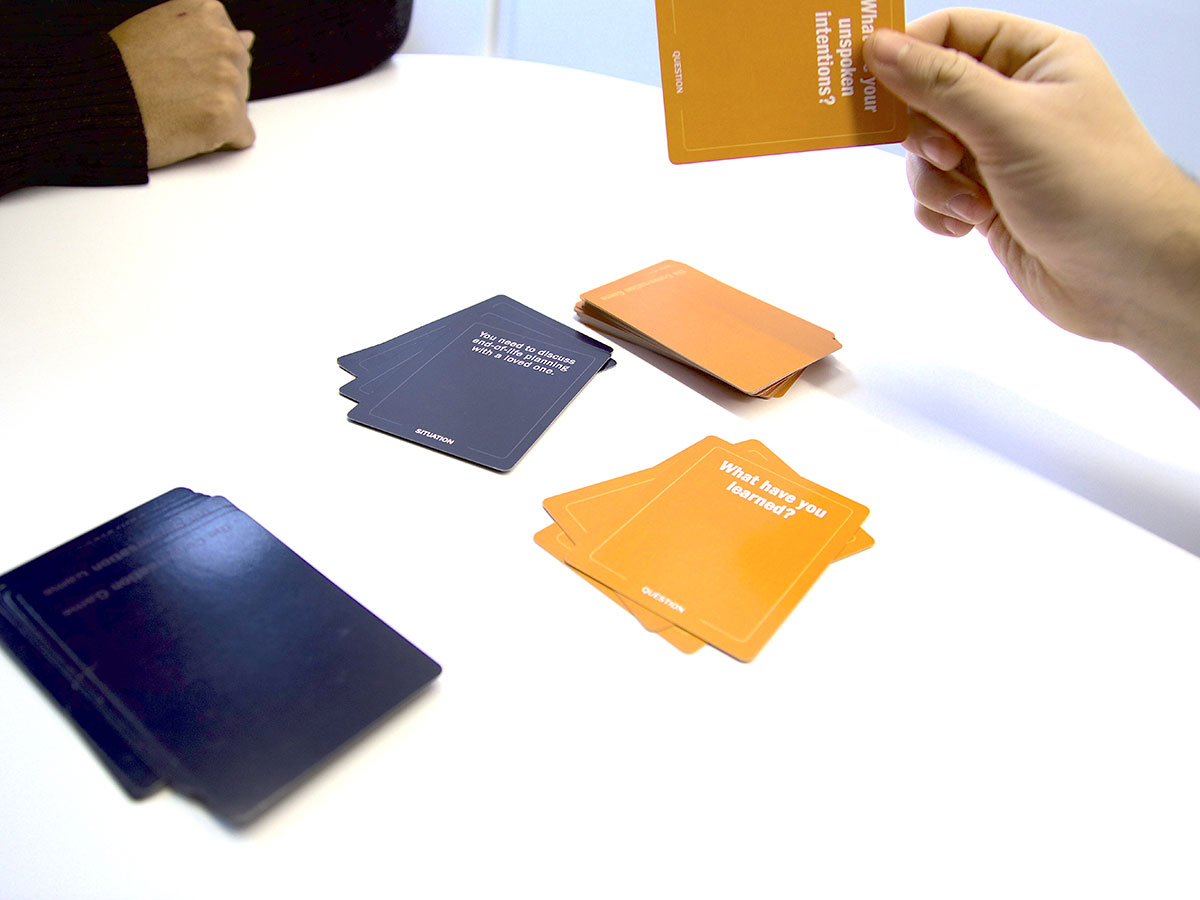“Using Things to Scaffold Difficult Conversations for Collegiate Residence Life Orientation Participants”.
From the article on Design Incubation:
“People can have a tough time talking with others about certain topics. Some topics, in combination with certain relationships can threaten the social identity of participants (Stone, Patton, Heen 2010), which can limit the potential for effective, replete relationships between people (Flores 2012). To help people begin to develop strategies for difficult conversations, designed things can serve in a number of ways: things can offer a frame to help people visualize challenging concepts, can provide an avatar upon which a person can project difficult subject matter, can offer prompts to help a person to develop responses. In short, things can act as scaffolding (Sanders, William 2001) extending the capacity of people to engage with difficult subject matter.
In the context of college residence life, some students assume formalized leadership roles within the student community, as resident assistants or orientation counselors. Beyond the anticipated duties of conducting the orientation activities, these students become de facto counselors and play a subtle but informal role throughout the year, helping students adjust to academic and residence life in college. These students, however, are not always prepared to serve as mediator in difficult conversations, or to fully consider the perspective that other students’ intersectional social identity might lend to a particular situation.
This presentation will share work done in collaboration with the Carnegie Mellon University Office of Residential Education and Center for Student Diversity and Inclusion where students used diagramming and conversation to explore aspects of social identity, and a card game/training program that was developed through an iterative process with design students. This presentation will discuss these artifacts, and propose a model describing a range of approaches by which things might moderate difficult conversation that may be useful for further work in this area. “


